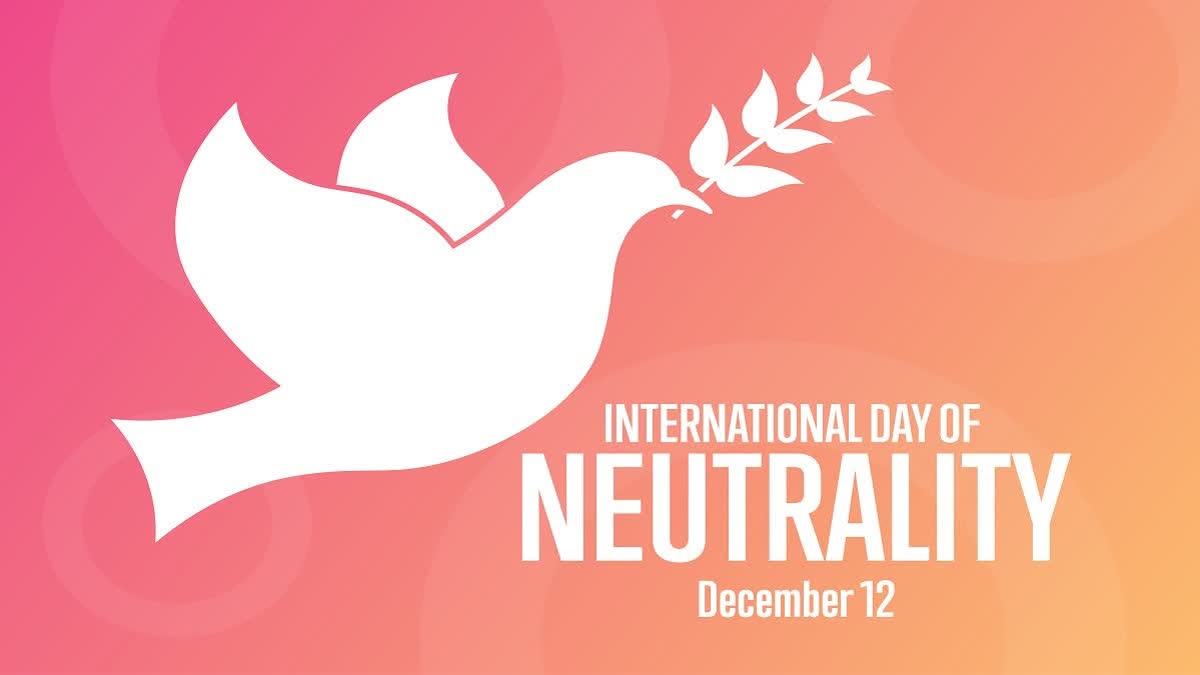Hyderabad: The International Day of Neutrality honours democracy and peace. The International Day of Neutrality is celebrated globally on December 12 of each year. On Turkmenistan's recommendation, the United Nations General Assembly declared the day in 2017. Promoting the value of neutrality in international relations was the main goal.
Being neutral indicates that a nation does not choose a side in times of conflict or war. Switzerland is among the most well-known nations that have maintained their neutrality. Switzerland maintained its neutrality throughout both World Wars. They have been impartial since 1815. Over the years, Switzerland has served as a safe haven for thousands of refugees thanks to their permanent neutrality.
Neutrality: Gaining and maintaining the trust and cooperation of all parties is crucial for the United Nations to function independently and effectively, particularly in politically charged situations. This trust and cooperation are defined as the legal status arising from a state's refusal to participate in any war between other states, the maintenance of an impartial attitude towards the enemies, and the recognition by the rivals of this abstention and impartiality.
The General Assembly stated these duties in its resolution 71/275, as Article 2 of the UN Charter requires member states to resolve international disputes peacefully and to abstain from the threat or use of force in their relations. The resolution also emphasised how important it is to develop mutually beneficial relations between nations and how some states' national policies of neutrality can help to strengthen international peace and security.
The General Assembly decided to declare December 12 as the International Day of Neutrality, and called for marking the day with events aimed at raising public awareness of the value of neutrality in international relations. This was done in recognition of the fact that such national policies of neutrality are intended to promote the use of preventive diplomacy, which is a core function of the United Nations and occupies a central place among the functions of the Secretary-General.
Background: Resolution 71/275, proposed by Turkmenistan, which has been recognised by the UN as a permanently neutral state since December 12, 1995, was adopted by the UN General Assembly on February 2, 2017, without a vote. The resolution highlighted the connection between the 2030 Agenda for Sustainable Development and the maintenance of peace, and it designated December 12 as the International Day of Neutrality.
Theme: The United Nations focuses on "preventive diplomacy," which is the diplomatic action taken to prevent disputes from escalating into conflicts and limit their spread; in addition, "peacekeeping," which has flourished in the decade following the end of the Cold War in 1991, and "mediating" in inter and intra-state conflicts at all stages are also covered. There is no particular theme set for the International Day of Neutrality.
- Purpose of Neutrality:
- The day's goal is to increase public understanding of the value of neutrality globally.
- Acknowledge the importance of neutrality in averting conflict, advancing peace, and encouraging global collaboration.
- The neutrality policy plays a significant role in promoting pleasant, peaceful, and mutually beneficial relations between nations worldwide. It also strengthens peace and security in important regions and globally.
- The goal of these national policies of neutrality is to encourage the use of preventive diplomacy, which is a fundamental duty of the UN and a prominent position in the Secretary-General's responsibilities. The General Assembly established the International Day of Neutrality on December 12 and encouraged celebrations of the day with activities aimed at raising public awareness of the importance of neutrality in international relations. Establish safe havens for aid workers and refugees.
- Key Highlights:
